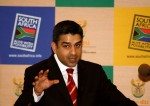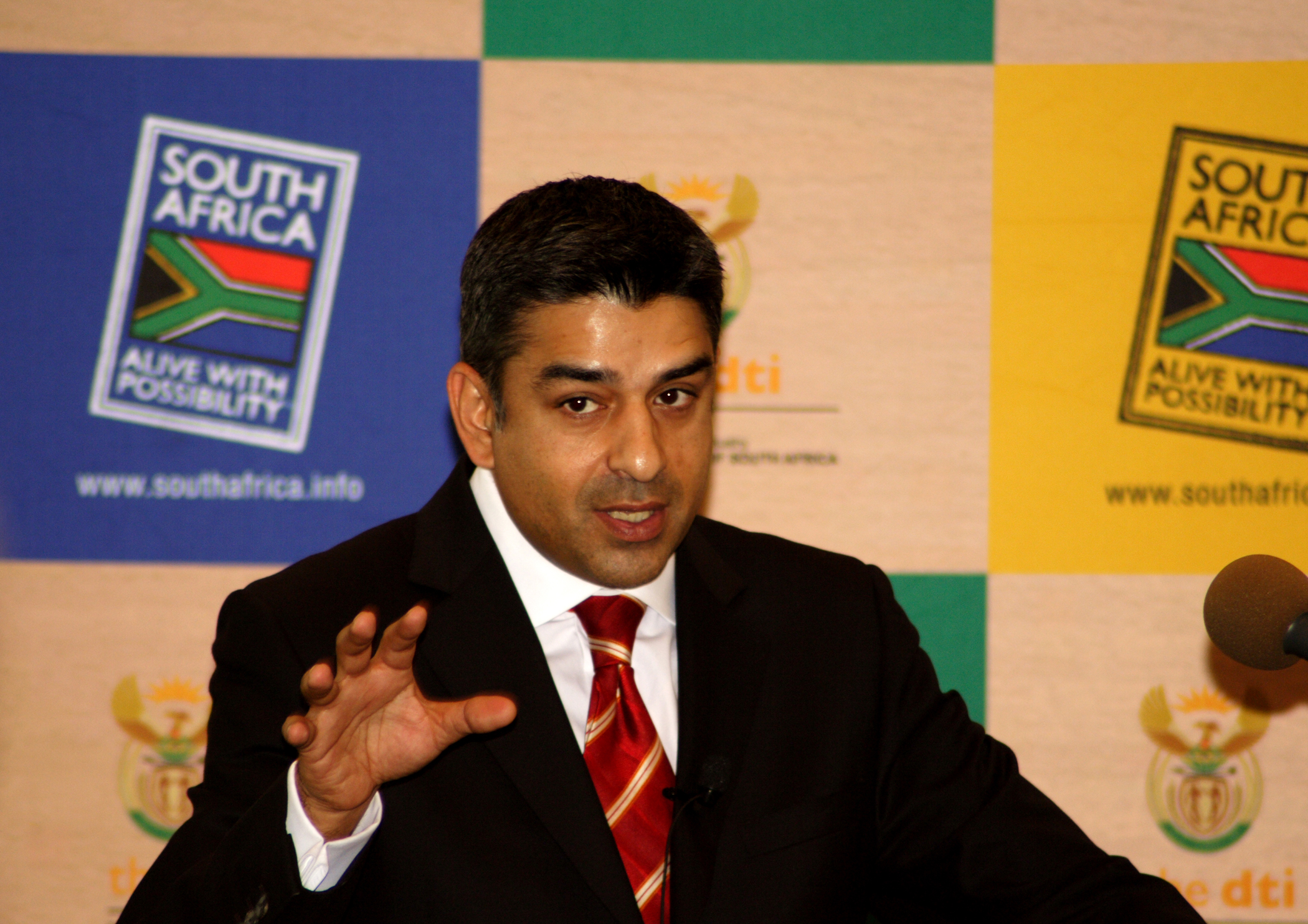
Minneapolis, MN – “South Africa is open for business,” has been the continued message from the South African government.
Last month a South African delegation made presentations to potential investors at a South African business opportunity seminar.
Iqbal Sharma, the deputy director general of the Department of Trade and Investment, who led the delegation said, “South Africa presents a very strong case for investing in Africa. With the current global slowdown, one needs to find pockets where they can make money. The emerging markets are these pockets.
An open market and a market conducive for foreigners, Sharma pointed out that it made sense to invest in the southern African nation.
Accompanying Mr. Sharma were both business leaders and government officials from different regions of the country. Representatives from four industrial development zones spoke about their respective regions. Represented were the Richard Bay IDZ by Dr. Syd Kelly, East London IDZ by Simphiwe Kondlo, Mpumalanga Economic Growth Agency by Sadiq Jaffer and Gauteng Economic Development Agency by Sindi Moloto.
Bill Blazer of the Minnesota Chamber of Commerce, Alvin-O-Williams of the Midwest Minority Supplier Development Council and Richard Kelly of the Intsimbi Project spoke about the importance of trade with Minnesota and the reasons why South African businesses should consider partnering with Minnesota firms.
Opportunities between Minnesota and South Africa
The technologies used in South Africa will provide great opportunity for Minnesota to create a biomass/coal facility in Southwest Minnesota. South Africa has the only commercially viable coal sequestration and carbon capture storage (CCS) technologies. Brad Gniffke, an entrepreneur from Redwood Falls spoke on the need to address the current over reliance of oil in the US economy.
While most of the world’s oil deposits are located outside the United States, the country has the largest deposits of natural coal with 27% of the world’s supply. By seeking a cleaner and smarter way to produce coal, Minnesota would be able to provide a feasible long term solution to tackling the growing problem of energy both within the state and across the whole nation.
The Minnesota State Legislature aims to tackle the energy problem by having 25% of its energy come from alternative fuels by the year 2025. As a way to solve this, Mr. Gniffke proposed a bold new initiative that combines biomass with coal production.
Biomass is the by product once all the grain has been harvested. This process has less of an impact on the world food production compared to ethanol production.
By partnering with South African firms, Minnesota will be able to meet its 25/25 goal and also provide a viable solution to the nation’s energy problem.
South Africa’s partnership with Minnesota
There has been a steady flow of activity between Minnesota and the South African Consulate since the beginning of 2006. This interaction resulted in a number of seminars conducted in collaboration with the Minnesota Trade Office (DEED). Other events included South Africa’s participation in the Pan African Trade and Investment Summit held in Minnesota as well as a flagship technical skills development project between Hennepin Technical College and the South African National Tooling Initiative. These activities culminated in the launch of the SA-Minnesota Business Council resulting in the trade mission by Sharma.
The mission to Minnesota has three core objectives. The first objective is to share with Minnesotan manufacturing companies opportunities for expanding their businesses in South Africa and to demonstrate to them how they can access the growing Southern African market. Companies like Ecolab, Valspar, Medtronic, Donaldson, The Carlson Group, 3M, Cargill, ADC Telecommunications and others have for years been doing a successful trade in the SA market. These companies benefit from South Africa’s sophisticated infrastructure, sound business environment and prominence on the African continent. The South African Federal government and the State governments have a range of incentives and finance vehicles available to manufacturers. Local entrepreneurs are keen to forge partnerships to tackle the lucrative tenders and projects that are available as infrastructure projects get underway. At the recent G8 summit, member states pledged to increase spending on energy resources by US$44 billion, the bulk of which will be spent in Africa. South Africa provides a natural platform for international companies to take advantage of this enormous opportunity.
The second objective is to discuss a number of the projects that the regional Investment promotion agencies opened up for international participation. Some of these projects need infusions of capital others need experienced technology partners and technical know- how. The South African Government believes that Minnesota has the business resources and technical know-how to help turn these initiatives into successful business ventures. A consortium consisting of Hennepin Technical College, National Institute of Metalworking Skills (NIMS) and Hired are currently working on a partnership with the South African National Tooling Initiative to close the skills gap that exists in the manufacturing sector.
The third objective is to familiarize South African businesses with the Midwest. As South African businesses are growing they too are looking for areas to invest. SA Breweries recently acquired Coors, and a South African mining house has recently acquired a mine in Colorado. PetroSA, one of our largest homegrown petroleum companies, is looking for a project management and engineering partner for a US$10 billion refinery project in SA. Sasol, who owns the coal to liquids (CTL) technology, is exploring partnerships for plants in the US. Long seen as a flyover state, Minnesota has become very prominent in the minds of SA businesses.
About South Africa
Southern Africa is not a traditional trading location for most US companies although it is one of the best intermediate sized markets accessible to American firms. South Africa’s real GDP is US$280 billion, a number that doubles when expressed as the Purchasing Power Parity GDP measurement. South Africa has a stable democracy, well managed economy, an educated workforce, and a highly developed infrastructure. English is the language of business and popular entertainment.
South Africa and most neighboring countries have good transparency ratings and legal and administrative establishments similar to the USA. These factors allow international businesspeople to transact with a minimum of cultural and administrative adjustments. South Africa has in recent years has encountered some of the fastest growth it has ever seen. Business and consumer confidence as well as the stock market performed at record highs in the recent past.
The event was organized by the Department of Trade and Industry, South African-Minnesota Business Council, International Marketing Council, and the South African Consulate in Chicago.
About Joshua Wanyama
- Web |
- More Posts(1)




